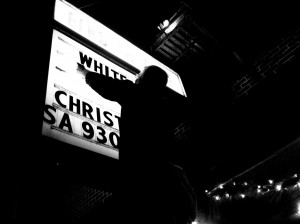 I have accepted that cinema is an ever-evolving medium. But I never expected our heritage to be at stake. This post is not a podium for me to exclaim film is superior to digital, nor will I be stating the digital conversion (or DC) was a poor decision of the industry. As a society furthering itself in the Digital Revolution, the DC was the most obvious future for the way we exhibit motion pictures theatrically. But I never expected this:
I have accepted that cinema is an ever-evolving medium. But I never expected our heritage to be at stake. This post is not a podium for me to exclaim film is superior to digital, nor will I be stating the digital conversion (or DC) was a poor decision of the industry. As a society furthering itself in the Digital Revolution, the DC was the most obvious future for the way we exhibit motion pictures theatrically. But I never expected this:
“We have decided to suspend theater operations…”
As I wrote that line in a memo to our email subscribers, Facebook fans, and website visitors, I caught myself recalling the final illustration of Shel Silverstein’s The Giving Tree, where the tree, now a mere stump, has nothing left to give the old man but a place to sit.
Will we only appreciate our original movie houses once they’re gone?
A crumbling two-year project and the lapsing trust of the community can only lead to existential questions about failure. Moreover, the commitment has made me think about unrequited love. Over two years ago, when I first decided to commit myself to saving the Elks Theatre of Middletown, Pennsylvania, my girlfriend instead pushed me to move to New York to pursue our film careers.
“What will this theater do for you?” She asked constantly.
“How can I possibly move away to begin a career in film knowing my home won’t have a place to enjoy movies itself?” I always responded.
I felt like it was my responsibility. And though failure is never true failure if you’ve learned something, running the Elks Theatre has been one of the most emotionally draining experiences of my life. And when we announced our “closure” of sorts, I could do nothing but choke back tears.

In 2014, we stand on the ruins of the most beautiful churches that have only been known to our culture for a little over a century. Oddly enough, the “preachers” that built them were replaced by successors driven by greed to destroy the creations of their forefathers.
In the early 1900s, future studio heads like Marcus Loew (who would form Loews Theaters and MGM) and William Fox (later founder of 20th Century Fox) opened their first theaters, and chains. A century later, these same studios announced they would end their distribution of film within a matter of months. And thus began the end of the independent movie theater.
I can only hope that with this continuing blog series, I can help to educate the public and industry about the private struggles and silent demise of independent cinemas during the digital conversion.
In the fall of 2011, 20th Century Fox issued their letter to the industry and theater owners that within about two years, their distribution of movies would be 100% digital. And like a terminal illness, I only was awakened to the importance of the digital conversion once it affected our local theater directly. The cinema in my hometown, the keystone to our business district, was in danger. And it is just one in the thousands of theaters facing the same hardship.
Hollywood’s reasoning to go digital is certainly understandable: “they stand to eliminate billions of dollars in coming years without spending very much,” said Todd Pollock, a former Universal Pictures Chairman, in 2010.
That’s true. Studios won’t need to spend much money at all. After all, it costs around $1,500 to produce a film print and only around $150 for them to produce an additional Digital Cinema Package, the new standard theatrical exhibition deliverable.
The plan sounded great. Movie quality would be lossless. Shipping costs would go down. The industry would see higher profits. So why was nearly ever cinema in the country responsible for their own $75,000-$100,000 digital projector? That’s per screen by the way. According to NATO, the number of cinemas in the United States has been steadily declining since 2000. Was this massive, immediately required financial commitment for theaters really the best way to go about a worldwide conversion?
One wonders… was the DC meant to also weed out the weaker fish?
Rewind to fall 2012. Just after I graduated from Temple University, the non-profit organization that owned the Elks Theatre, the Greater Middletown Economic Development Corporation (GMEDC), upon which my father sits on the board, took direct control of the theater’s operations. The DC paranoia was at its peak, and realizing the Elks needed to convert, my best friend, Dan, and I decided to step up and spearhead fundraising efforts, which we dubbed the SAVE THE ELKS! Campaign. Dan and I thought it would be easy between some fundraising events, classic film screenings, and a few corporate gifts. After all, the cinemas of Newtown, PA, and Iowa Falls, IA, converted so quickly. Well, we can’t all be Patrick Whitesell.

There was a hell of a lot to learn.

Cinema: The Elks Theatre
Screens: One
Age: 103, opened in 1911 (after an earlier theater burned down)
Amenities: Serpentine Balcony
Seats: 469
Location: Middletown, PA
Population: approx. 9,000
Median Area Income: $42k
Learning to operate the Elks Theatre and understanding the business of running a movie house week-to-week was in many ways its own film school. Here are the top three things we learned immediately:
1. Our low ticket prices, $6.75 for adults and $4.75 for kids, were the primary reason patrons frequented the theater, instead of any other multiplex within twenty miles. We are a much cheaper family outing than anywhere else.
2. Much like how Hollywood depends on them as well, tentpole blockbusters are the true bread and butter for cinemas. A large percentage of a theater’s revenue come from those four to five absolutely booming weekends out of the year.
3. We are not in the business of showing movies, we are in the business of pushing popcorn, soda, and candy. What Edward J. Epstein, author of The Hollywood Economist told you is true. The markup for each type of refreshment will shock you, but the splits cinemas have with distributors over box office gross leave them little to be sustainable. Selling the sweet and salty is our lifeline.
Allow this to be just a taste of my two year experience with the Elks Theatre and our seemingly endless mission to acquire a digital projection system. Over the coming weeks, I hope to share with you tales from the trenches of our campaign, shed light on the realties of operating a theater in the 21st century, and reveal the relationships between studios and small exhibitors- which can only be described as disturbing.
I’ll also present ideas about how we filmmakers can help our struggling community cinemas.
And hopefully, by the end, we’ll realize we should have been paying attention to the life of the independent movie theater. And then maybe we will.
Other posts in the series:
No Accidents in R: Struggle of the Homegrown Cinema, part II
You Forgot About US: Struggle of the Homegrown Cinema, part III
 Max Einhorn (@MaxEinhorn) is a producer, writer, and crowdfunding planner. After graduating from Temple University’s film program in 2012, he relocated to New York and worked for Good Machine veterans Anthony Bregman at Likely-Story and Glen Basner at FilmNation Entertainment. Einhorn is currently the Manager of Acquisitions and Distribution at FilmRise, a new distribution company based in Brooklyn. He lives in Manhattan with his girlfriend Cara, also his producing partner. Over the past two years, Einhorn has been a tireless crusader for the survival of his hometown cinema, the 103 year-old Elks Theatre in Middletown, PA.
Max Einhorn (@MaxEinhorn) is a producer, writer, and crowdfunding planner. After graduating from Temple University’s film program in 2012, he relocated to New York and worked for Good Machine veterans Anthony Bregman at Likely-Story and Glen Basner at FilmNation Entertainment. Einhorn is currently the Manager of Acquisitions and Distribution at FilmRise, a new distribution company based in Brooklyn. He lives in Manhattan with his girlfriend Cara, also his producing partner. Over the past two years, Einhorn has been a tireless crusader for the survival of his hometown cinema, the 103 year-old Elks Theatre in Middletown, PA.




